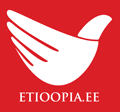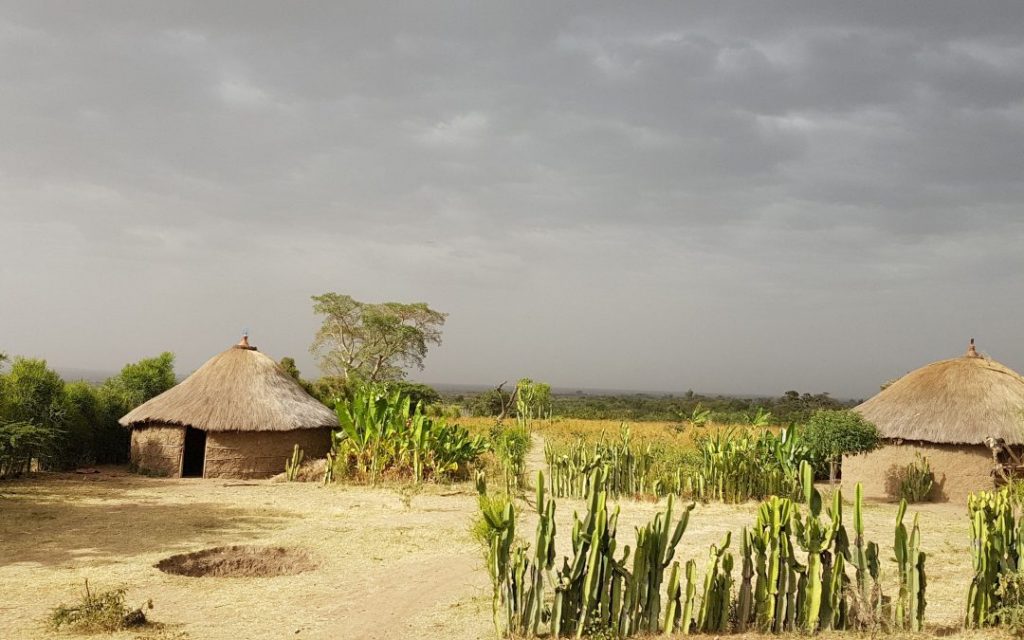
There was no significant positive changes to notice in the streets of Sodo before 2017. The most joyful one was that the children from the streets and the sewer ditches were gone. There were freshly painted “zebras” on the roads accompanied by a police officer teaching the drivers a new and useful habit of stopping at the crossing. Next to the officer there was a cardboard analogue to signal the drivers from a distance: this is going to be a place where they need to stop and that the pedestrian is also a human being. Most common is still the mindset that in the car there must be a wealthy person – who has money, has the power – it is so obvious here that stopping a car for a pedestrian is outright inappropriate.
A year later in 2019 the changes were gone as quickly as they had appeared. Ethiopians were puzzled by the resignation of the new prime minister Hailemariam Tesalegni. It was historically the first time in whole Africa anyone had given up their rule voluntarily and created a lot of confusion. There were protests throughout the country for a whole year.
And yet again the children are back in the sewer ditches, the traffic is a mess again, the “zebras” faded as if it had never been any different. To implement change the new prime minister has passed rules that are much more lenient than the previous laws.
9 years ago only the wealthier people were able to afford a motorbike or a car but now many people can afford the 800 euro motorbike. Most often they do not have a drivers permit but there is really no requirement for it either. If one can afford it they can just by the drivers permit for a few thousand birrs. There was a rumor that a few months ago the police had been checking the drivers permits on the streets. All offenders had their bikes impounded and speeders were imprisoned. Within a few days the detention facility was full to the brim with offenders and the parking lot in front of the police station was filled with motorbikes so fast that it was decided to hastily legalize the offences.
Despite my taking special care when crossing the streets I was already bruised from a collision with a motorbike on the second day. The driver didn’t even bother to stop. I limped to the nearest cafe so the whole of Sodo wouldn’t gather to gaze on the injured white person. I got some scraps of ice from the fridge in the cafe and sat in there nearly breaking into tears until I managed to let it all out to my fellow countrymen. I had had it good. Not even a week had passed when a 5th grader from our program got hit by a motorbike so that there was almost nothing left of her front teeth. Once again no-one knows anything of the driver and life goes on while caution substitutes itself with pathological fear and constantly looking out on the streets makes you end up falling into the concrete ditch. It is a well designed feature of humans to let the bad fade from memory and vividly remember the good things.
The good changes are that new classrooms have been built for the primary school and its’s filled with children who vigorously fight for a better future for themselves. Upon meeting the youngest ones for the first time and seeing the joy in their eyes when they get to take a shower in our hotel it makes all the mess and disorder on the streets seem vague. Washing is done with eyes wide open staring upwards at the running water. Even with their faces covered in soapy foam they keep their eyes open and gaze at the running water.
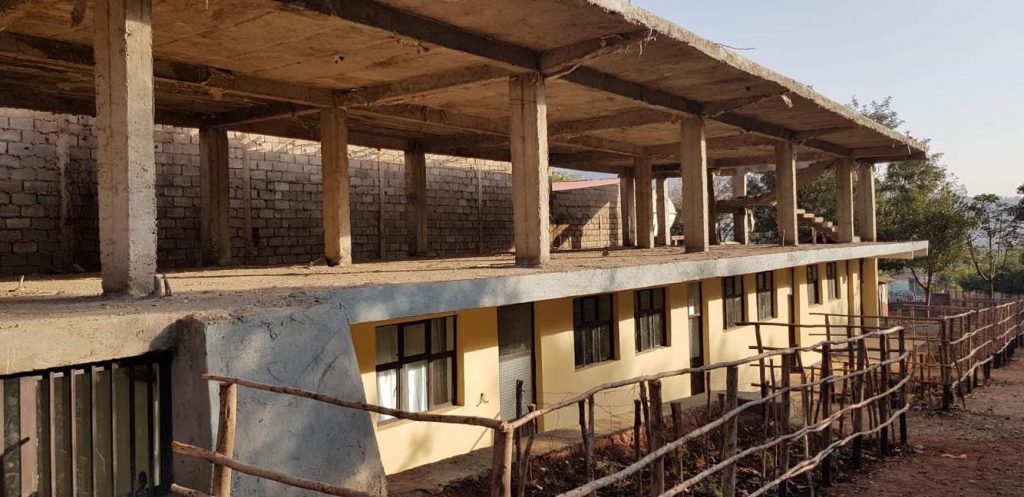
It is nothing that remarkable but it changes you a little every single time. And again every time turning the tap at home.
Boys have it more easy. They can was at the river. Unfortunately girls don’t have that luxury because there is a lot of raping going on.
Everything is many times easier for a man here.
Whether a man wants to sleep it off on the grass of the city central square or take a leak in a ditch in front of the fanciest hotel they can do it at will whenever there is a need.
Every year we have had to change the service provider for the school lunches. Many different reasons for that. During the first years the cook wasn’t able to do the math for the amount of food and their own pay. The cook leaving town or the location of the school changed also occurred. Last year the caterer didn’t have an ID in English which Swedbank requires for an international transaction. Unfortunately even an owner of a mid-size cafe cannot get an international ID. Many different reasons for that. Trip to the capital is too expensive, time-consuming, notary too costly and there is really no motivation. Investing into their future is as incomprehensible to a local person as their general modus operandiis to us.
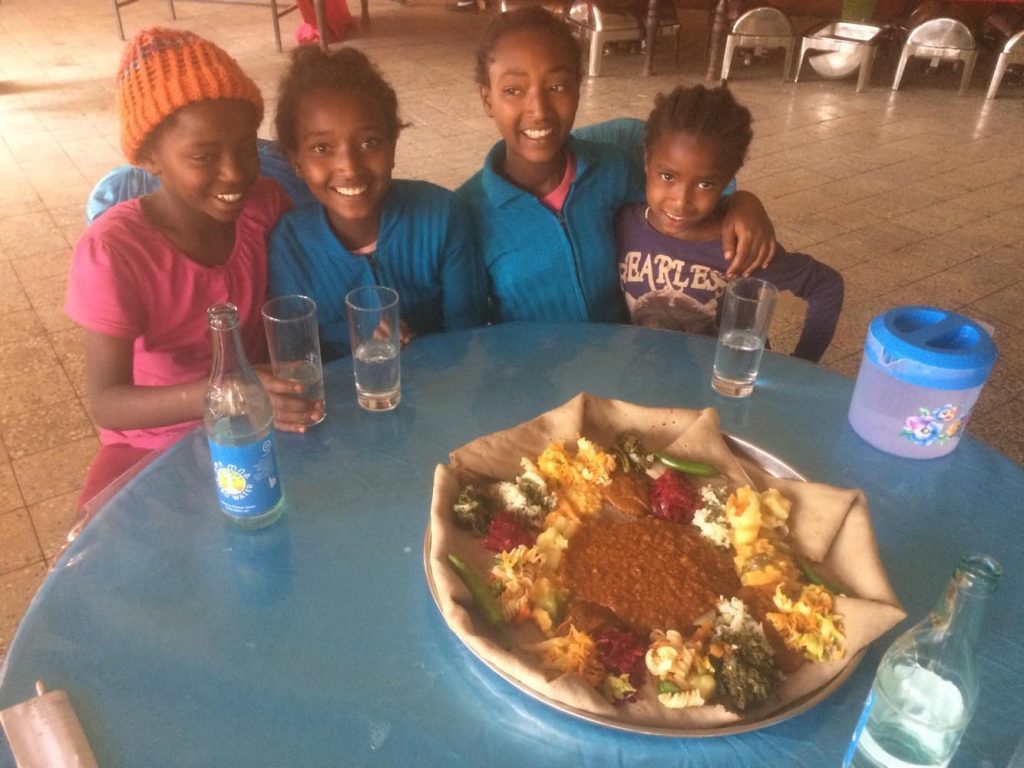
Due to all of these hurdles we ended up in the canteen of the Sodo cultural centre, Wolaita Gutara House. It is situated right next to the school and it hosts local governments seminars and conferences. Gutara House is known for their fancy chairs and good cheap local food. The right solutions come easy and so it was this time. Within a few weeks we had a signed agreement. One doesn’t get into the cultural house to eat with unwashed clothes. The opportunity to lunch there will bring about significant change in the behaviour and study success of our children.
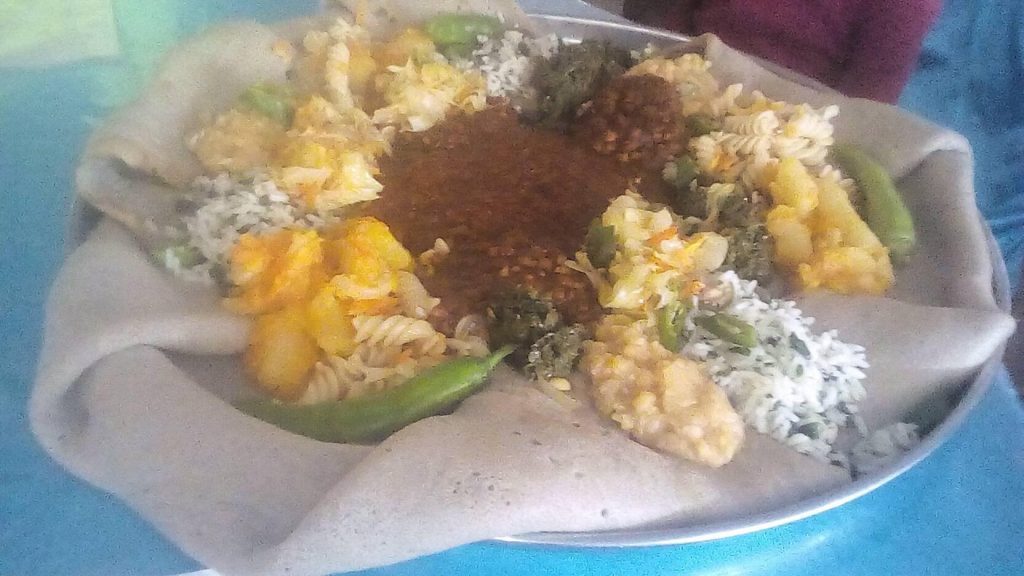
Curiosity which beats the fatigue when arriving in Sodo will not let one stay in the hotel for long. Getting rid of the clothes we haul with us is a relief. The fact that our surplus is of very high value here makes it particularly special. The families whose situation is a little bit worse than very bad get their bags full of clothes on the very first day. It is not reasonable to hand out these bags in school because everybody still needs everything and a lot of fuss would only come of it. The Abera family residing on the foothill of Damota mountain had a makeover done on their hut with crooked walls – it had been straightened up and it was bigger as well. In 2015 this family got themselves a new wall for their house thanks to the help of some good Estonian folks. Last time we left Sodo the wall was standing up on backing supports. We were reassured that over time both people and situations change
